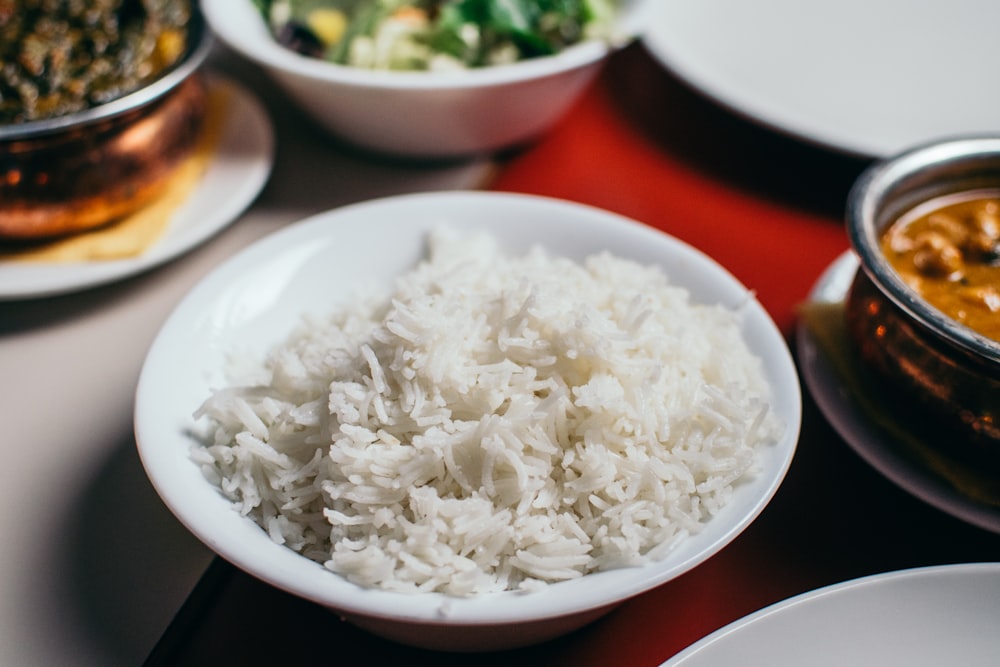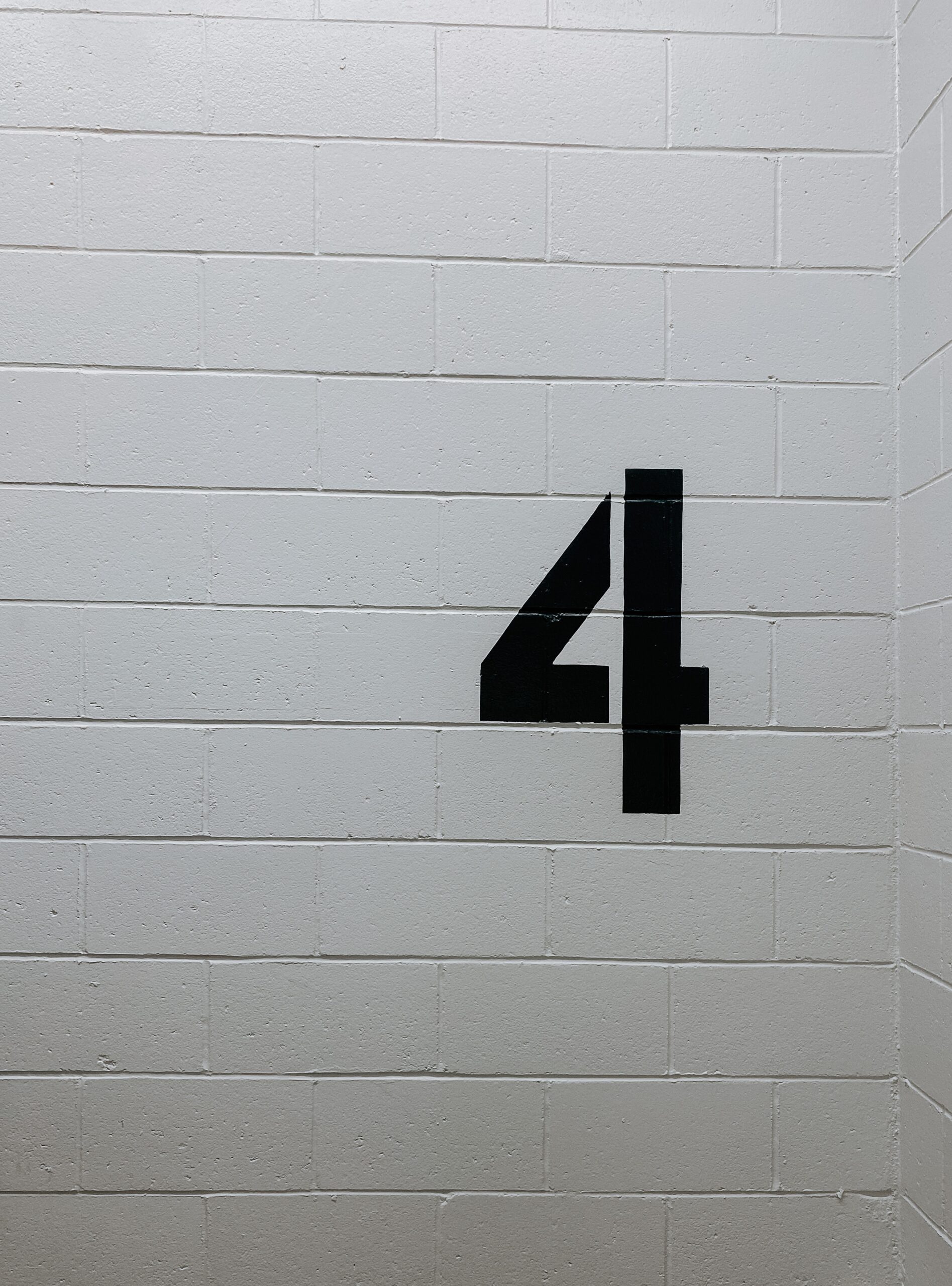Ah, the darn things our parents would say to try to get us to finish our food and to steer clear of ghosts, bad luck, and death. 😨
In Asian culture, we share a lot of beliefs and fears of inauspicious omens. While I definitely want to make sure I’m not scaring my children, I do want to pass on some of these beliefs because they offer a sense of comfort. It’s nice to think that you have control over preventing bad things from happening to you, as long as you follow the rules. It also helps to have potential explanations for your bad luck. Plus, as we’ll see with Superstition #1, sometimes these can be kind of handy if you want to help steer your kids into good behavior by motivating them with the right superstition.
1. Finish every grain of rice in your bowl

…Or else your future husband/wife/partner will have pimples on their face corresponding to the number of grains you’ve left behind.
This is a common superstition in Asian culture, primarily used by parents to get their kids to finish their rice and not waste food. Anecdotally, I believed in this wholeheartedly while growing up, so I always finished my rice, and have now been rewarded with a blemish-free husband! 😂 Whether one thing had to do with another, we’ll never know, but I do credit this belief with helping me formulate a lifelong habit and attitude towards not wasting food, especially rice.
It’s worth noting that this superstition most likely originated from the agrarian roots of Chinese culture. For the bulk of Chinese history, farming has been the way of life and a lot of people could not afford to waste even a tiny grain of rice. Thus, wasting food is a big cultural taboo and that’s why it’s important for parents to raise kids to not disrespect our ancestors.
2. Before you sleep, make sure your slippers are not both pointing at the same direction

Ghosts use the direction of where the shoes are pointing to find you. Thus, you’ll want to have the shoes facing opposite ways to confuse the ghosts. Alternatively, point them both in the direction away from you and never leave both slippers facing the bed, or you will point the ghosts directly to you!
3. Don’t leave your chopsticks sticking straight up in your bowl

In Chinese culture, two sticks coming out of a bowl resembles the incense sticks used in funerals, so leaving chopsticks sticking up from a bowl is a real no-no, especially when you’re a guest in someone else’s home. Essentially, you would be cursing everyone at the table to be dead- yikes. Instead, lie your chopsticks together and flat across your plate or bowl, or on the side of your bowl.
This superstition also exists in Japanese culture, but for a slightly different reason. In Japan, when you offer food to the dead, you would offer up a bowl of rice with chopsticks sticking up. Thus, if you do that to your own rice, you’re declaring yourself dead.
4. Unlucky #4
Similar to how the number 13 could be considered unlucky to Americans, the Chinese try to avoid the number 4 and Chinese buildings often lack a 4th floor. This is because the number 4 (四, pinyin: sì; Cantonese: sei) sounds very similar to the word “death” (死 pinyin: sǐ; Cantonese: séi).
The number 14 is often avoided as well, as fourteen (十四, pinyin: shí sì) sounds like “is dead” (是死, pinyin: shì sǐ; Cantonese: sahp sei) in Mandarin and “will definitely die” in Cantonese.
Some Fun facts:
- Tetraphobia is the practice of avoiding instances of the number 4
- When Beijing lost its bid to host the 2000 Olympic Games, it did not pursue the 2004 Games, most likely to avoid the unpopular number 4 in China. Instead, Beijing ended up hosting the 2008 Games, and 8 is actually a very lucky number to the Chinese
- In 2013, Richmond Hill, Ontario in Canada, which has a large Chinese population, banned the number four on new houses. City planners there obviously have a strong understanding of their market.
5. Don’t go directly home after a funeral

There are many beliefs around ghosts and spirits in Asian culture. For this superstition, the idea is that funerals are associated with spirits, and not necessarily that of your loved ones. To prevent ghosts from following you home after a funeral, it’s best to stop somewhere else first.
In Chinese culture, there’s a practice of a consolation feast after the funeral ceremony. The family of the deceased would organize a vegetarian meal in a restaurant after the funeral. This is meant to help cleanse the body and mind after attending an inauspicious event. It can also double as a way to not go straight home after the funeral.
6. Don’t shake your leg when you’re sitting

This superstition has been so ingrained in me that it’s become a real pet peeve to see people I care about shake their leg while sitting down. The idea is that you would be shaking away your wealth and fortune. It most likely originated from the belief that shaking your leg indicates laziness. For most of Chinese history, people toiled in agriculture work, so if you have time to shake your leg, it probably means you were not out all day performing physical labor.
7. Don’t whistle at night

This superstition is very common across various cultures. The idea is that by whistling at night, you’re drawing the attention of evil spirits and are inviting them to haunt you. It’s really interesting how so many different types of people have their own variation of this superstition-
- The Chinese believes that whistling at night would invite ghosts to your home
- Koreans believe whistling at night draws snakes and ghosts
- The Japanese believe whistling at night would attract snakes, thieves, and demons called tengu
- Native Hawaiians believe that whistling at night summons the Hukai’po (Night Marchers)- the ghosts of ancient Hawaiian warriors
8. Don’t give a clock as a present

A clock (鐘 pinyin: zhōng; Cantonese: zung) or a watch is something you’d want to avoid if you’re looking to give a gift to someone. It symbolizes running out of time or counting down until the end, so it would be as if you were wishing death upon your recipient. It’s particularly rude and disrespectful to give one to the elderly. The word 鐘 is also phonetically similar to 終 (pinyin: zhōng; Cantonese: zung), which means the end.
9. Don’t wear green hats

This one is more of a cultural faux pas than superstition, but I would still pass this on to my kids to let them know not to wear green hats. In Chinese, the idiom 戴綠帽子 (wear green hat) is used to describe a person who has been cheated on or cuckold. There are a couple of etymology explanations for this phrase. One says that a long time ago, there was a husband and wife in a Chinese village. The husband travelled often for business, and the wife started an extramarital affair. To let her lover know that her husband was heading out of town, she sewed a green hat and made the husband wear it whenever he left for business. Soon, all the villagers caught on to this trick but the husband was none the wiser. They would snicker and laugh behind his back every time he walked around with the green hat. To this day, most Chinese men would not want to intentionally put a green hat on their head for fear of attracting this type of bad luck.
10. Don’t go to bed with wet hair

Growing up, my mom always wanted me to wash my hair early in the morning and always warned me of washing my hair at night and going to bed with wet hair. According to her, this would be a sure way to catch a cold and get sick. While health experts do not agree directly with this superstition (colds are spread from viruses, not wet hair), there are a couple of other risks you might want to consider.
Sleeping with wet hair can actually increase your chances of developing a fungal infection of the scalp- one that could lead to dandruff or dermatitis. In addition, it could contribute to hair damage as hair is weakest when it’s wet, so you could risk breaking your hair as you toss and turn at night.
In short, Mom is always right, in one way or another.
